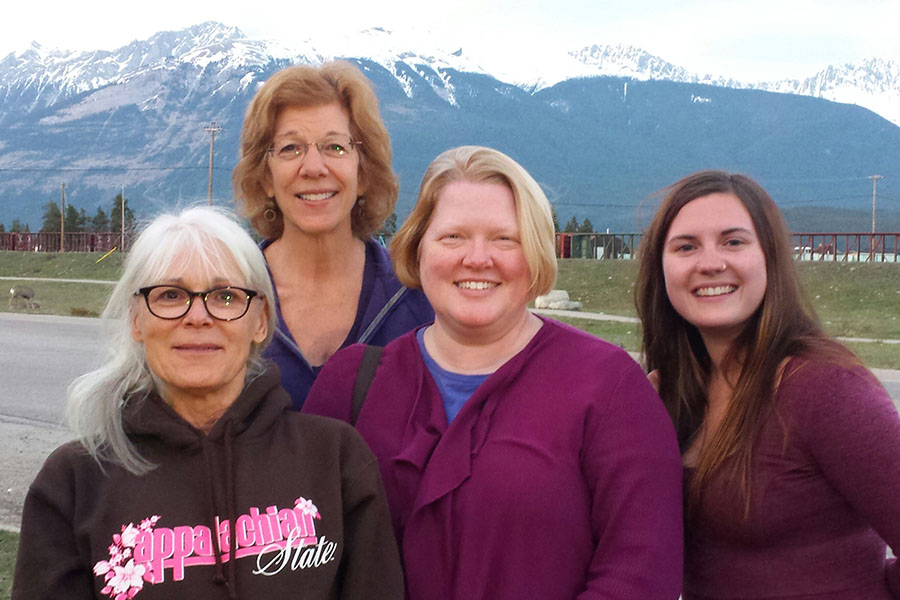BOONE—Three graduate students and a faculty member from the Center for Appalachian Studies at Appalachian State University presented papers at an international mountain studies conference held at Jasper National Park in Alberta, Canada, in May.
Organized by the University of Alberta’s Canadian Mountain Studies Initiative, the academic conference, Thinking Mountains 2015, was an interdisciplinary gathering of over 140 scholars from around the world who presented research about mountain environments and cultures.
Dr. Katherine Ledford, assistant professor of Appalachian studies, and three of her students pursuing the Master of Arts degree in Appalachian studies – Melanie Harsha, Karen Russo and Robyn Seamon – shared their research on the Appalachian Mountains.
The graduate students’ presentations were derived from their papers for a seminar on global Appalachia. The seminar places early representations of Appalachia within the European traditions of the picturesque and the sublime and directs graduate students in studying the region in comparison with other mountain regions around the world, including the Alps, Pyrenees, Carpathians and Andes, among others.
Harsha presented research on serpent handling religious traditions in Appalachia; Russo introduced conference attendees to the development of ecotourism in Appalachia; and Seamon compared systems of natural beekeeping in Appalachia with apiarian practices in other mountain environments in Europe. Ledford presented an argument for the benefits of comparative mountain studies to the field of Appalachian studies, a portion of her current book project.
Ledford said, “This conference was a unique opportunity for my graduate students to practice comparative critical thinking about mountains in conversations with other scholars from around the world. We met people from Africa, Asia and Europe, all conducting research on mountains and mountain cultures.”
As part of the conference, Ledford and the graduate students visited the Athabasca Glacier and learned about environmental factors impacting the Columbia Icefield, the largest ice field in the Rocky Mountains.
“In Canada, my graduate students visited mountains that are very different physically and culturally from the Appalachian Mountains,” Ledford said. “This conference extended the work we did in my global Appalachia seminar in beneficial ways. It challenged my graduate students to consider our Appalachian Mountains from different perspectives.”
Participation in the conference was made possible by support from the Center for Appalachian Studies, the College of Arts and Sciences, the Office of Student Research, and the Graduate Student Association Senate, part of the Cratis D. Williams School of Graduate Studies.
About Appalachian State University
As a premier public institution, Appalachian State University prepares students to lead purposeful lives. App State is one of 17 campuses in the University of North Carolina System, with a national reputation for innovative teaching and opening access to a high-quality, cost-effective education. The university enrolls more than 21,000 students, has a low student-to-faculty ratio and offers more than 150 undergraduate and 80 graduate majors at its Boone and Hickory campuses and through App State Online. Learn more at https://www.appstate.edu.
What do you think?
Share your feedback on this story.












